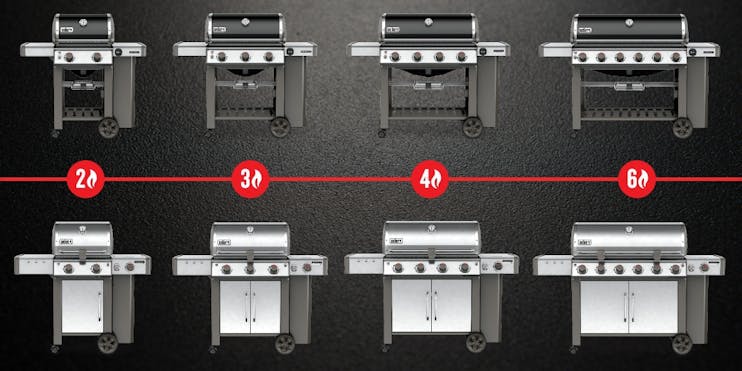5 Must-Know Things About Your Weber Gas Grill - Part II
Grilling can be as simple or as complex as you want it to be, but there are some things every Weber gas grill owner needs to know. Here’s part two in our ongoing series of “Must Know Things about Weber Gas Grills”! Check out part 1 here.
#1) KEEP YOUR BURNERS CLEAN – Without burner tubes you don’t really have much of a gas grill, which is why it’s so important to keep them clean and in good shape. The more you clean them, the longer they will last and the better your grill will perform. Click here for details on cleaning burner tubes.
#2) FLAVORIZER BARS GET UGLY – Flavorizer Bars probably get more abuse than any other part of the grill, and it shows. Don’t be surprised if your Flavorizer Bars get ugly looking pretty quickly. Unless they have holes or cracks in them they will function just fine. Not sure when to replace your Flavorizer Bars? Click here to find out.
#3) ONLY CERTAIN MODELS CAN BE “BUILT-IN” – Outdoor kitchens are more popular than ever, but not every Weber grill can be put into an outdoor kitchen structure. Check out our blog on the topic for more details.
#4) MODIFICATIONS ARE A BAD IDEA – Each Weber grill has been meticulously designed, engineered and tested in a certain form. When someone alters the grill from its factory intended design, things can go wrong that we never anticipated. For more details, check out our blog on the topic.
#5) TAKING A GRILL OUTSIDE THE COUNTRY IT WAS SOLD IN IS USUALLY A BAD IDEA– Each Weber gas grill was made to meet the gas requirements for the specific country it’s being sold within. Once you cross an international boundary those requirements can change significantly, and usually a grill made for use in one country can’t be used in another. For more on the topic, click here.



